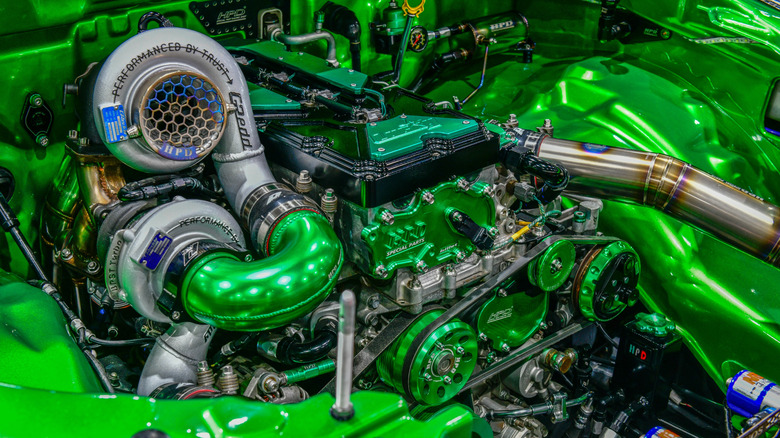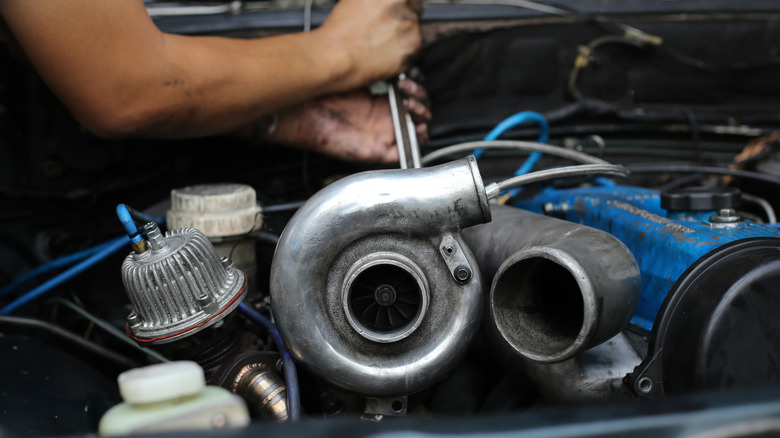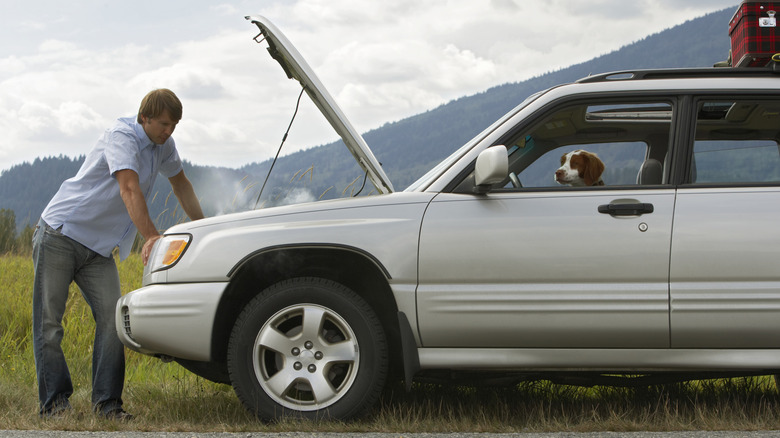What Does A Boost Leak Sound Like? (And How To Tell If Your Engine Has One)
Boost leaks are notoriously common culprits in underperforming turbocharged vehicles. Coupled with boost lag and diminished fuel efficiency, boost leaks can lead to higher maintenance bills and engine wear. If you drive a turbocharged vehicle, a boost leak might be sabotaging your engine's performance — and it is not always easy to identify. While the severe ones usually make a loud hissing sound while the turbo spools, minor leaks may need dedicated leak tests.
A turbocharger provides the constant supply of air that your engine needs to operate optimally. A boost leak is essentially an air leak somewhere between the turbocharger and the engine cylinders, causing a characteristic hissing sound. Similar to how a human can't keep sprinting when they're out of breathe or out of shape, an engine suffers to maintain its power delivery during a leak. Interestingly, the engine also gasps for breath by overworking the turbo and asking for more compressed air. That's also why untreated boost leaks can severely damage the turbocharger and the engine over time.
Symptoms indicating a boost leak
As mentioned earlier, boost leaks limit your engine from reaching its peak performance. A boost leak causes similar symptoms to other issues that affect engine performance, making it relatively harder to pinpoint. While it is best to have a professional grade boost leak test, diminished engine performance and sluggish acceleration are among the most noticeable symptoms of a boost leak. If your vehicle has a boost gauge installed, you may notice leak induced pressure drops much more quantitatively.
The loud hissing sound from beneath the hood is the biggest giveaway of a boost leak. A typical boost leak sounds like compressed air leaving from a small gap, similar to how a tea kettle sounds while whistling. That sound should be an immediate indication to check for a leak.
Apart from these, keep an eye on your fuel consumption. A leaking turbo might be working overtime to compensate for the boost loss, and end up gulping extra fuel in the process. Similarly, check for rising engine temperatures, as the stressed turbos can easily become hot and heat up the entire engine compartment.
The impact of a boost leak on your car
Boost leaks put undue stress on key vehicle components — especially the engine and turbo — to overwork and compensate for any boost loss. Prolonged usage under such stress can overheat the turbo and cause it to wear out much faster than expected. Moreover, the extra fuel consumption can easily stack up and show in your fuel bills. In extreme cases, the incorrect air-fuel ratio in the cylinders can cause the engine to misfire and severely degrade the performance output.
Since a boost leak can resemble a ton of other engine issues, it is best to get a professional boost leak test if you suspect a problem. The boost test involves pumping compressed air through the turbo inlet and spraying soap water to identify the leaks. The air leaking from a fault produces bubbles in the soap water indicating the location of the leak. Minor leaks such as loose clamps and faulty hoses are easily repairable. However, major leaks stemming from faulty intercoolers or turbochargers can require replacing the faulty components altogether. As a preventive measure, regular check for wear around the intercooler boots and fix any loose clamps before they start leaking.


